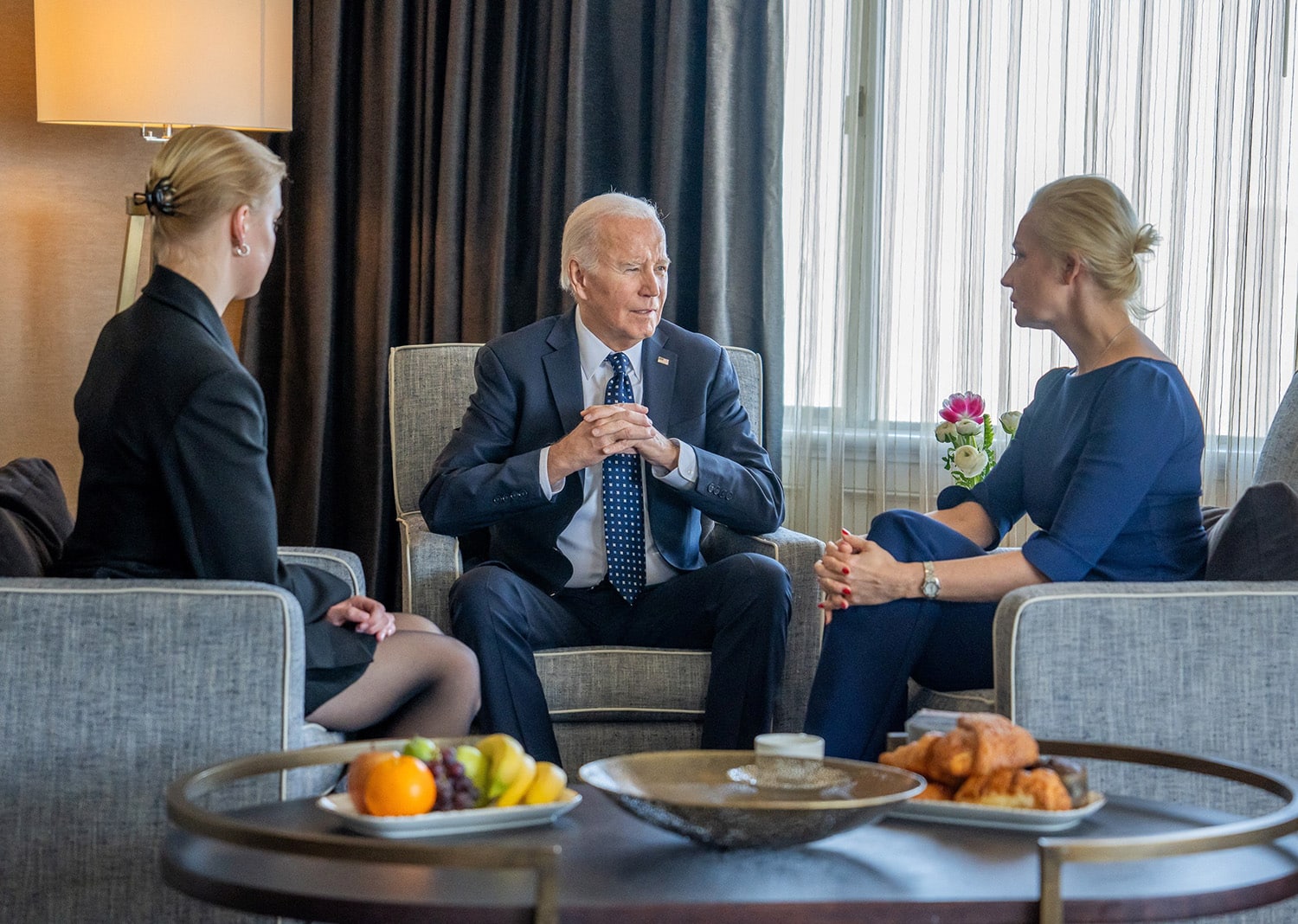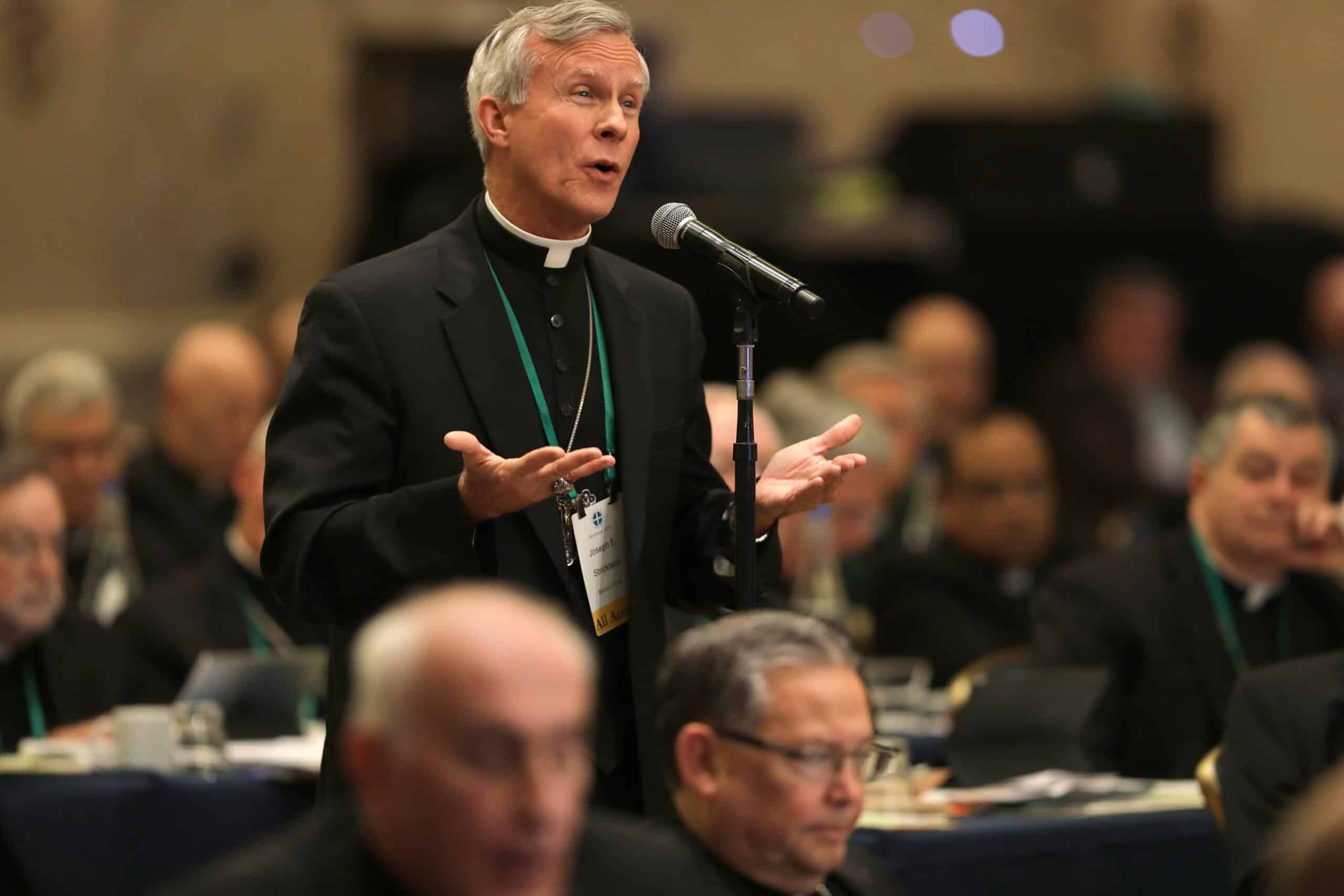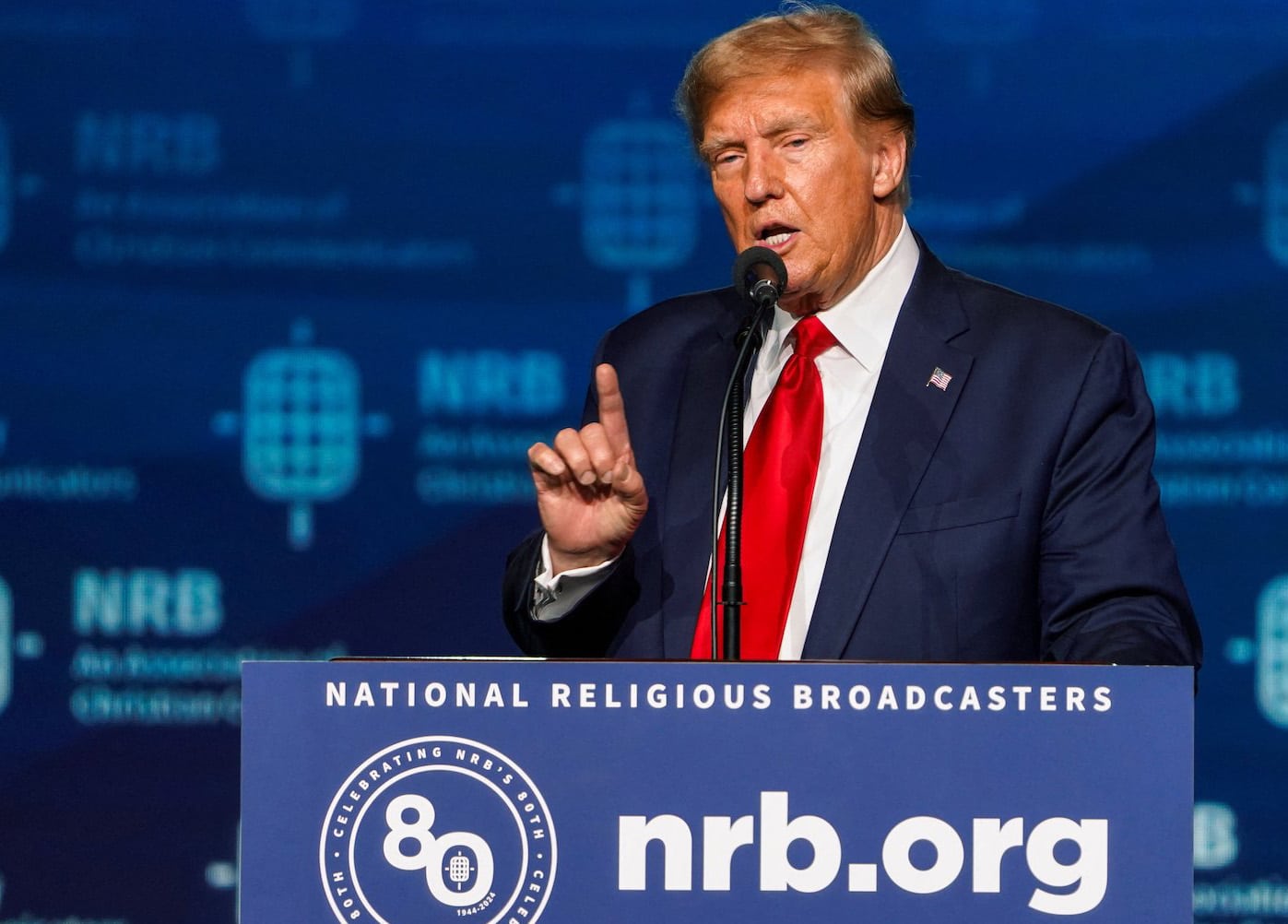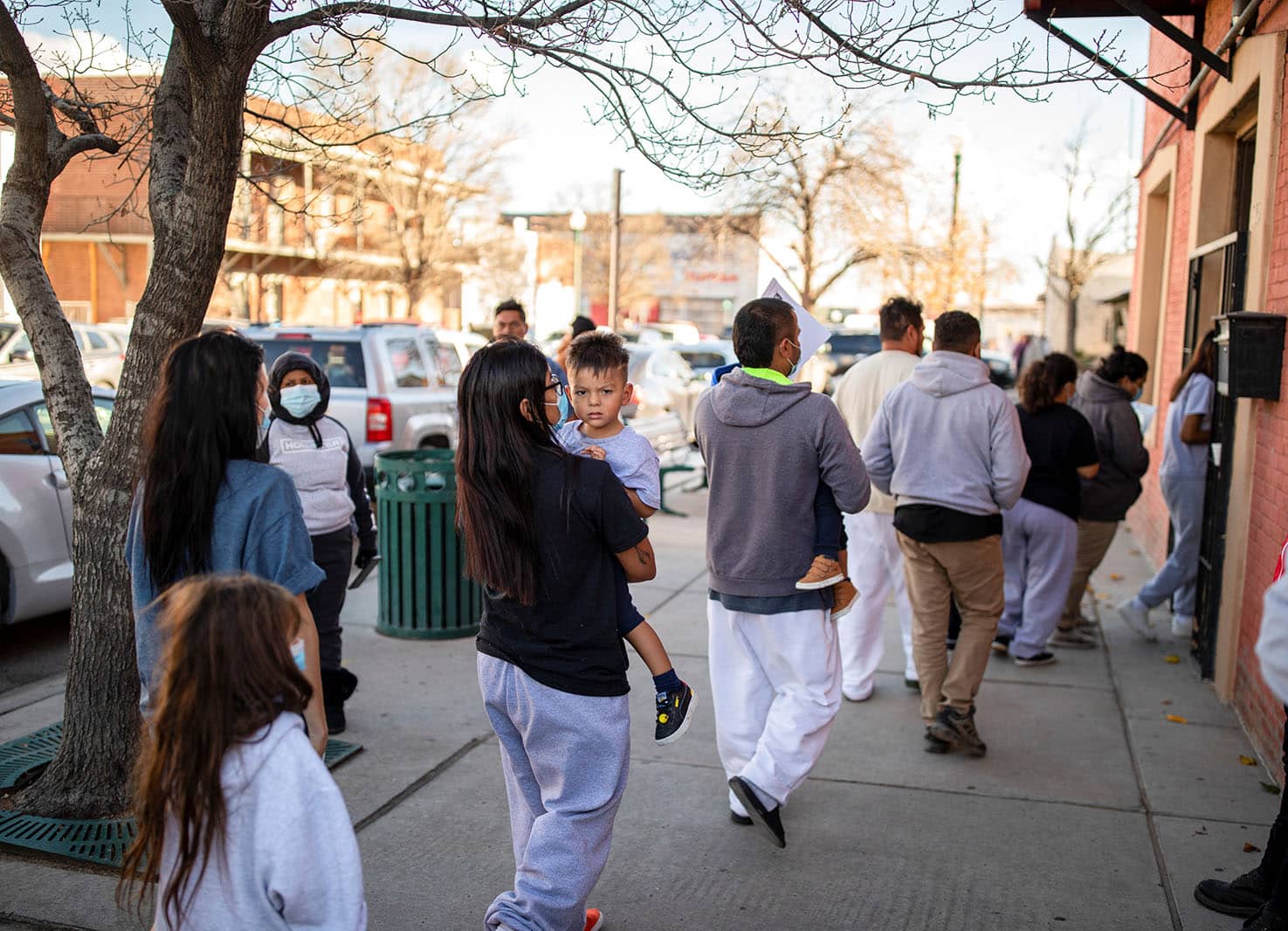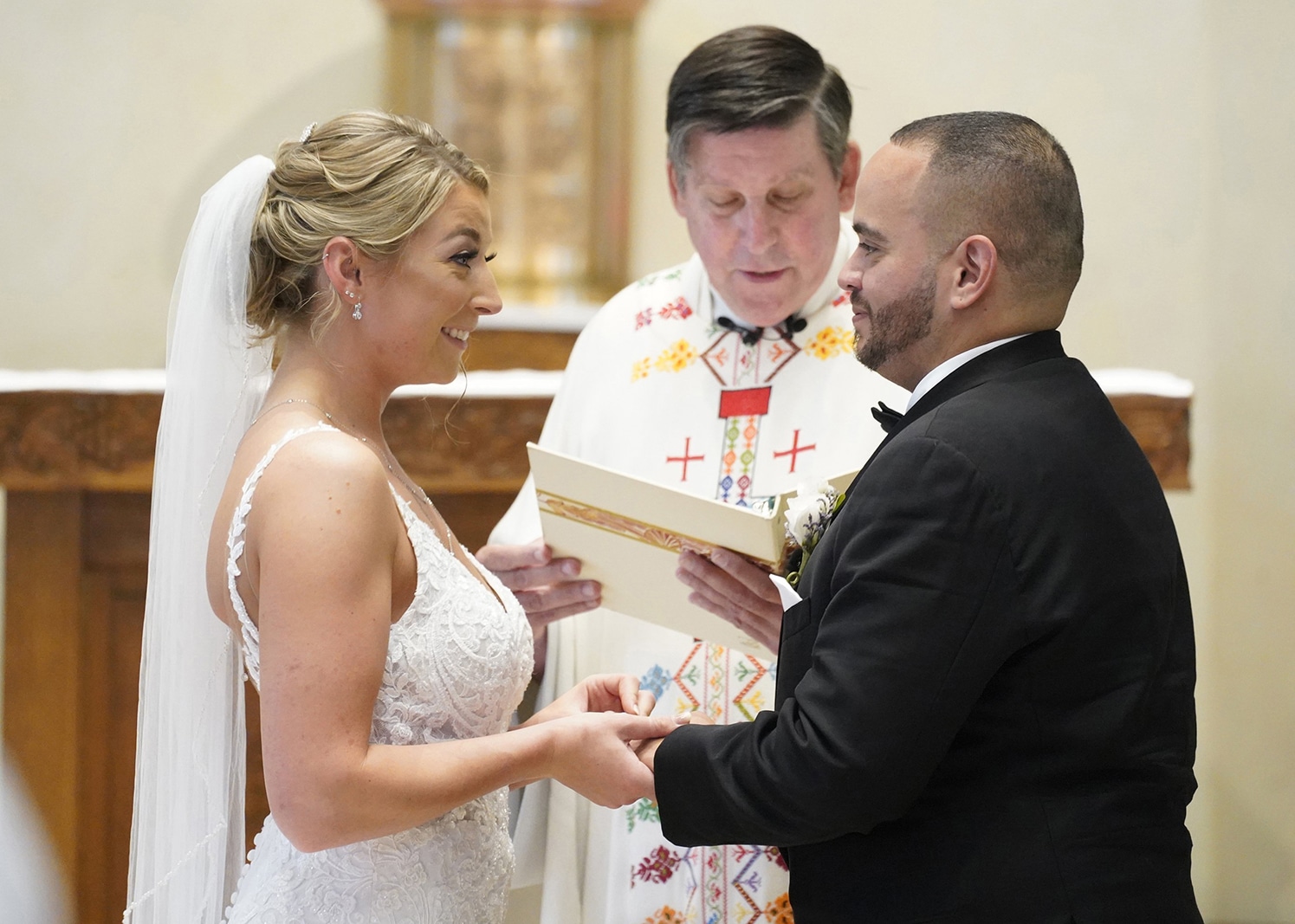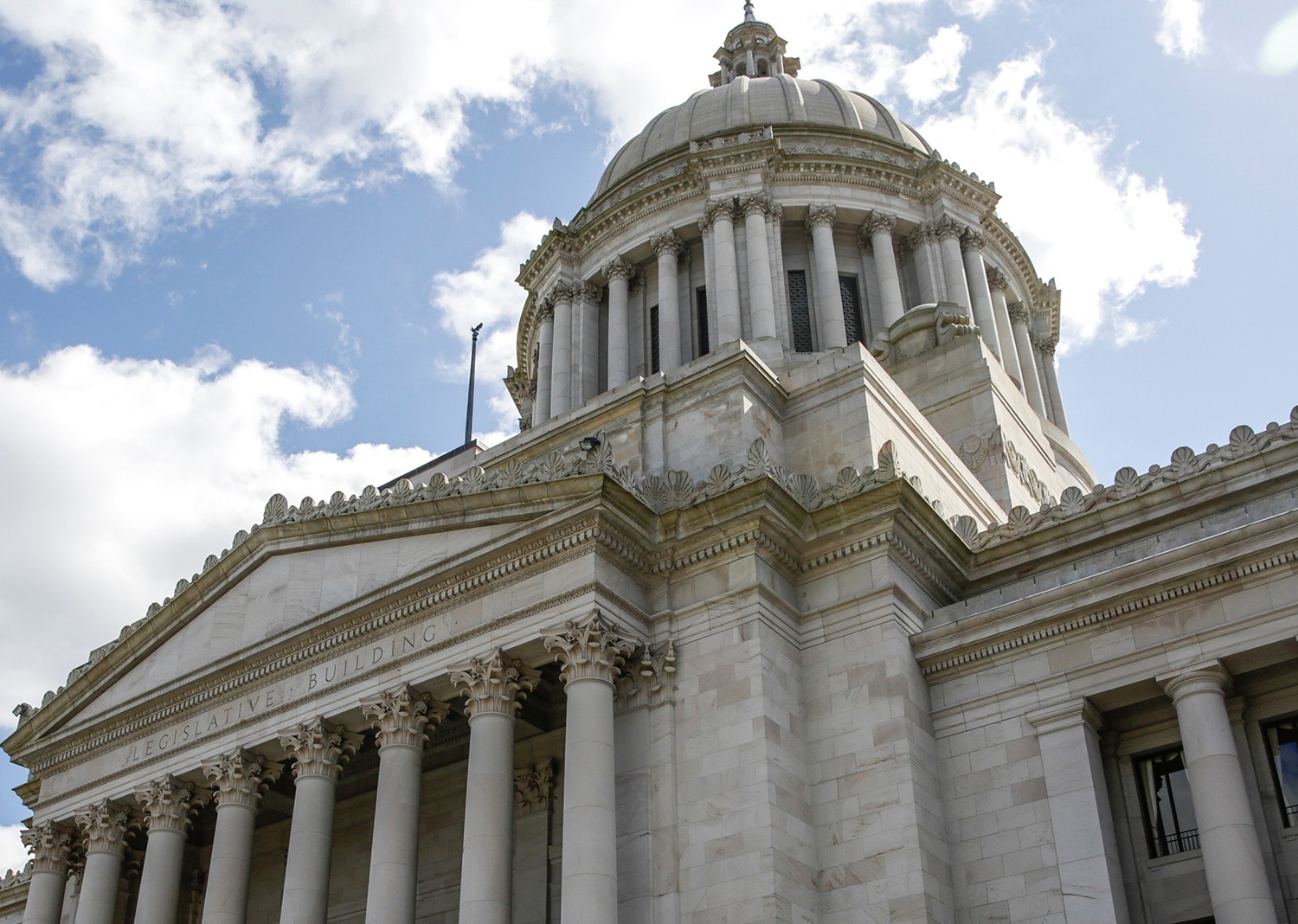WASHINGTON (OSV News) — President Joe Biden on Feb. 23 announced more than 500 new sanctions on Russia over its invasion of Ukraine and the death of Russian opposition leader Alexei Navalny in prison.
Nikki Haley, a former U.N. ambassador and South Carolina governor, pledged to remain in the race for her party’s presidential nomination and said that while she personally believes a frozen embryo is a baby, she disagrees with the Alabama Supreme Court’s in ruling on vitro fertilization amid a lawsuit concerning the state’s wrongful death law.
The annual Conservative Political Action Conference met just outside Washington with Bishop Joseph E. Strickland, the former shepherd of the Diocese of Tyler, Texas, set to address the conference’s Ronald Reagan Dinner as a keynote speaker.
Biden also announced another $1.2 billion in student loan forgiveness.
White House issues new sanctions on Russia after Navalny’s death
Russian officials attributed Navalny’s death in a remote prison to “sudden death syndrome,” but Biden said Russian President Vladimir Putin sent his rival to prison for “fabricated crimes” and that “Putin is responsible for Navalny’s death.”
The White House said the new sanctions, which came just before the second anniversary of Russia’s invasion of Ukraine, will target individuals connected to Navalny’s imprisonment as well as Russia’s financial sector, defense industrial base, and sanctions evaders and financial supporters of Russia’s war “across multiple continents.”
“They will ensure Putin pays an even steeper price for his aggression abroad and repression at home,” Biden said in a statement.
“What has happened to Navalny is yet more proof of Putin’s brutality,” Biden added. “No one should be fooled — not in Russia, not at home, not anywhere in the world. Putin does not only target the citizens of other countries, as we’ve seen what’s going on in Ukraine right now, he also inflicts terrible crimes on his own people.”
Biden added Navalny “was so many things that Putin was not.”
“He was brave,” Biden said. “He was principled. He was dedicated to building a Russia where the rule of law existed and where it applied to everybody. Navalny believed in that Russia — that Russia. He knew it was a cause worth fighting for and, obviously, even dying for.”
Biden reiterated his call for the House to approve a $95 billion aid package for Ukraine, Israel and Taiwan recently passed by the Senate following months of a stalemate amid growing divisions within the Republican Party over the role of the United States on the global stage.
The legislation faces an uncertain future in the House even as Ukraine’s forces are running out of ammunition without U.S. resupply, and Catholic agencies report persecution in parts of Ukraine under Russian occupation.
“Ukraine needs more supplies from the United States to hold the line against Russia’s relentless attacks, which are enabled by arms and ammunition from Iran and North Korea,” Biden said. “That’s why the House of Representatives must pass the bipartisan national security supplemental bill, before it’s too late.”
Biden also met Feb. 22 with Yulia and Dasha Navalnaya, Navalny’s surviving wife and daughter, in San Francisco “to express his heartfelt condolences for their terrible loss following the death of Aleksey Navalny in a Russian prison,” the White House said.
Haley and Trump comment on Alabama Supreme Court ruling
Haley weighed in on a Feb. 16 ruling by the Alabama Supreme Court that found that embryos are children under the state’s Wrongful Death of a Minor Act, a statute that allows parents of a deceased child to recover punitive damages for their child’s death.
Asked by NBC News whether she agreed that embryos are children after that ruling, Haley said: “Embryos, to me, are babies.” Haley added that she underwent fertility treatments.
“I had artificial insemination. That’s how I had my son,” Haley said. “One thing is to save sperm or to save eggs. But when you talk about an embryo, you are talking about, to me, that’s a life. So, I do see where that’s coming from when they talk about that.”
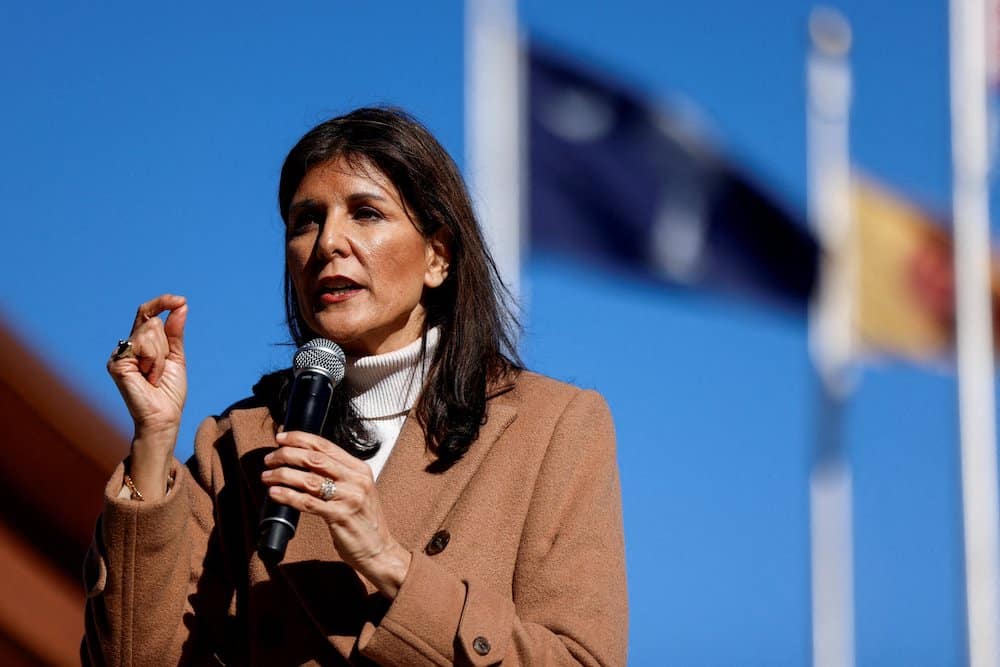
But Haley later told CNN that while she believed Alabama’s highest state court ruled correctly on the letter of the law, the state’s Legislature should “go back and look at the law.”
On Feb. 23, GOP frontrunner and former President Donald Trump also issued his own statement calling for the Republican Party to support IVF access throughout the U.S. and for Alabama lawmakers to do the same.
The Alabama Supreme Court ruling came in response to appeals brought by couples whose embryos were destroyed in 2020, when a hospital patient removed frozen embryos from storage equipment, destroying them. The judges found that parents’ ability to sue over the wrongful death of a minor child applies to unborn children, without an exception for “extrauterine children.”
Bishop Strickland to speak at CPAC
Matt Schlapp, CPAC’s chairman, announced Bishop Strickland as a speaker for the annual conference in a post on X, formerly Twitter, saying that the group is “honored to have this courageous Catholic leader take this important role during” CPAC.
Pope Francis removed Bishop Strickland from the pastoral governance of his diocese in November, without giving a public reason for his removal. However, speculation about his future in the diocese mounted after the bishop’s online posts accusing the pontiff of “undermining the deposit of faith.”
The pope’s decision followed Bishop Strickland’s address to an Oct. 31 gathering in Rome, where he read from a letter by a “dear friend” that accused Pope Francis of being a “usurper of Peter’s chair” and then commented that Pope Francis was himself supporting an “attack on the sacred.”
In remarks emailed to OSV News Feb. 23, Bishop Strickland said, “I did not agree to speak at CPAC in order to push any political agenda.
“The Church is not identified with any political community or tied to any political system. And we understand that no politician, political party or platform will align perfectly with the Gospel,” he said. “However, the reason I agreed to speak at CPAC was because it was an opportunity to bring forth Truth. Truth does not bend — and neither does it come dressed in red or blue. However, when you look for Truth, you find it where traditional values are held and where human dignity is reinforced. And because these are tenets of this group, I feel this is fertile ground for speaking Truth.”
OSV News sent a follow-up question to Bishop Strickland, following Trump’s call for the GOP to protect IVF access in all 50 states, asking whether he would speak to the Church’s moral opposition to legalizing IVF before the gathering. A media representative for the bishop acknowledged the request and said she would endeavor to provide a response before his keynote address to CPAC.
CPAC, once a collection of conservative elected officials, policymakers and commentators of varying ideologies and ideas, has grown increasingly controversial and consolidated into a group of staunch allies and supporters of former President Donald Trump, who frequently speaks at the conference himself. The 2024 conference included an exhibit with a virtual pinball game featuring photos from the Jan. 6, 2021, Capitol riot, during which supporters of Trump stormed the Capitol in an attempt to block certification of Joe Biden’s victory in the 2020 election.
Biden issues additional student loan forgiveness
Biden canceled an additional $1.2 billion in student loan debt, bringing the total amount to $138 billion for 3.9 million borrowers, according to the White House. Biden initially sought to cancel up to $400 billion in debt for about 43 million borrowers, but that plan was struck down by the Supreme Court, which found that Biden overstepped its authority.
“The ability to repay, though, has become so burdensome, a lot of people can’t even repay,” Biden said Feb. 21. “And they try. They — they don’t miss payments. They work like the devil every month to pay their bills. But even if they pay their loans, their debt increases. It doesn’t diminish because of interest rates.”
Biden said he concluded it would “make a lot more sense to relieve student debt for families and it would grow our economy.”
The Catholic Church has typically framed the issue of debt within its social teaching on the dignity of the human person. While addressing the issue of debt incurred by poorer countries, St. John Paul II in his 1991 encyclical “Centesimus Annus” taught that debt repayment in principle is just, but it cannot be “paid at the price of unbearable sacrifices.”
“In such cases it is necessary to find — as in fact is partly happening — ways to lighten, defer or even cancel the debt, compatible with the fundamental right of peoples to subsistence and progress,” the pontiff said.

